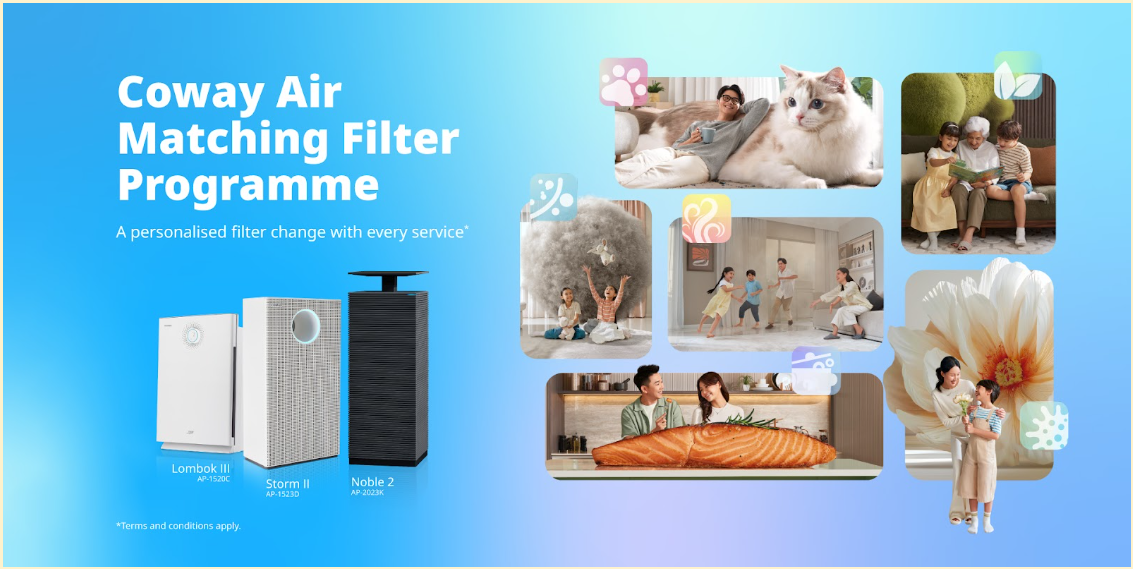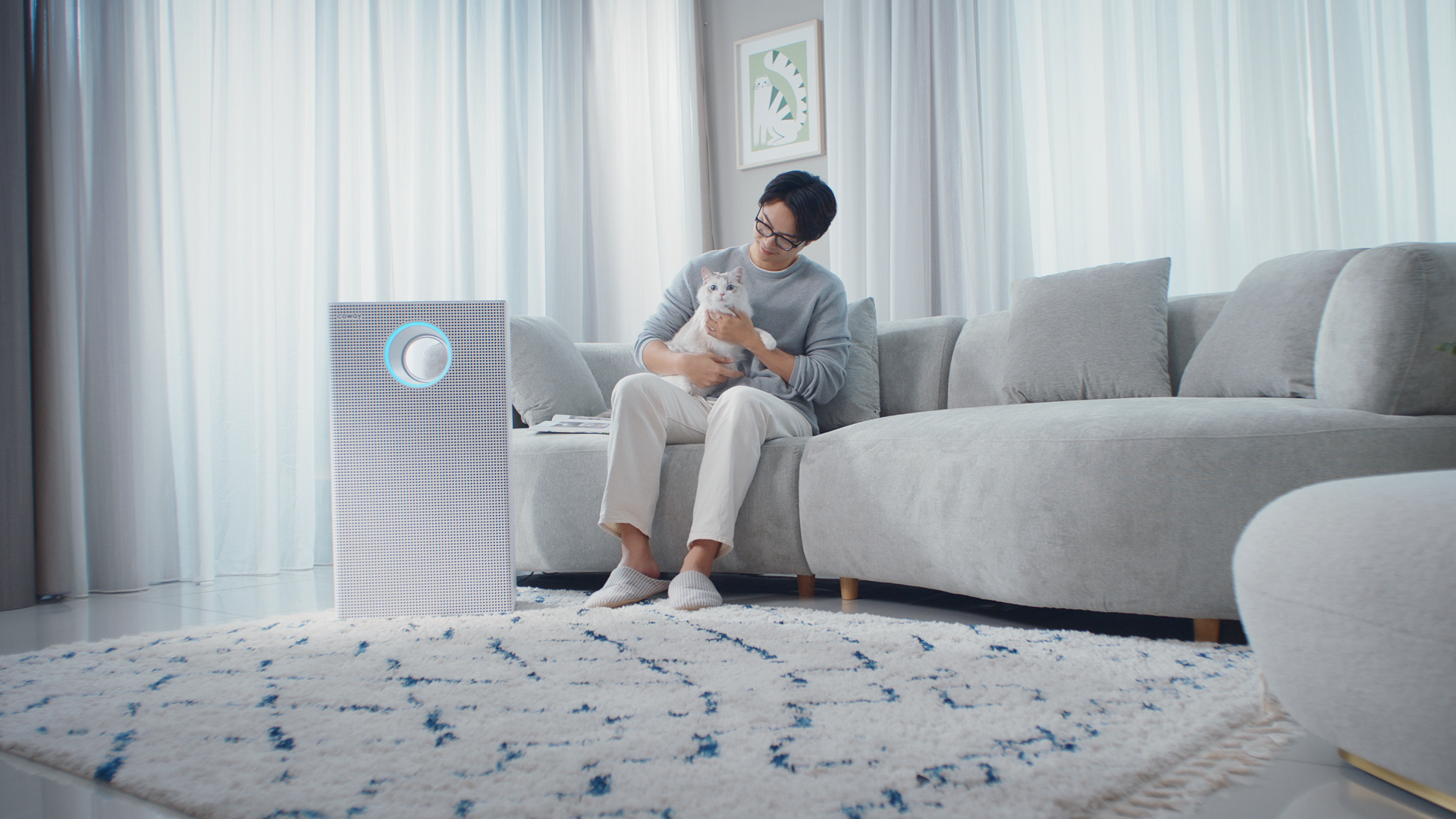With well over a decade of experience in assisting distressed pet owners and ill FurKids seven days a week, Dr Thiba shares with Oyen her incredible journey and hardships that brought her where she is today.

Dr Thiba: My name is Dr Thiba Rajoo. I have been a small animal veterinarian for about 17-18 years. Since I was seven, I dreamed of becoming a vet and that has not changed. I don't see myself doing anything but this. I'm very happy and content with going to work every day and I look forward to meeting my clients and patients. Many have their dream jobs but are not in a place where they can take on the jobs. This is why I find myself very fortunate because I am living my dream.
Oyen: That would be a dream come true for many!
Dr Thiba: Honestly, I'm very lucky and I naturally had a passion and love for animals. My dad was a National Geographic fan. When I was younger, he used to bring home their VCRs and we would sit and watch them together.
One episode in the documentary truly moved me. A mother bear had just come out of hibernation to search for food and had a little cub with her. They were surrounded by mountains and trees. The mother bear found a big tree with a little hole filled with honey. She kept on nudging the tree but there was a massive boulder on top of the tree. As she was nudging the tree, she lodged the boulder and it dropped on top of her cub, it died.
That scene shocked me and I cried for days. I remember asking my dad, “Why didn't anybody help the baby? Why couldn't they help the baby?” Then my dad said, “Well, that is nature and they can’t interfere.” I asked him what I could do to help animals and he said, “I suppose you need to be an animal doctor.” I was set.
At one point, my mother questioned my decision to become a vet because my siblings are all human doctors, and I'm the only vet in the family. She was very adamant about me becoming a human doctor but I stood my ground and said, “No, I am going to be a vet and nothing can stop me.” It's amazing how life has given me this opportunity and I don't believe that I will be happier doing anything else.

Oyen: Can you perhaps describe what it’s like being a veterinarian? What does it mean to you or what value does it encapsulate for you?
Dr Thiba: It's not easy being a vet or human doctor since this type of profession deals with saving lives or life in that matter. I'm a very passionate person and I'm one of those who didn't become a vet because I didn't get to do something else. I got a place at Murdoch University in Australia, but unfortunately at the time, it was a period of recession for Malaysia. Hence, I didn't get the scholarship to study at Murdoch University.
I was very heartbroken but I didn't give up.
I couldn’t just give up on my dream and I wanted to know what my other options were. What else can I do? What else am I good at? I used to go to educational fairs to see the courses offered. At one of the fairs that I went to, there was a Fakulti Perubatan Veterinar under UPM. I went there and met a nice lady who sat across from me. We conversed and I told her that I wanted to become a vet and asked for her advice as to what I would have to do. I did my South Australian matriculation, not Form 6. I didn't know if I could enter a local university.
I showed her my transcript and offer letter. I was carrying these documents because to me that was a dream. She then took out her visiting card and gave it to me. On the card, it read Deputy Dean of Academics. She looked into her diary and told me to see her at UPM in the Faculty of Veterinary Medicine. She asked me, “Do you know where that is?” I replied, “Yeah yeah my sister studies at UPM!” She continued, “Come and see me. Tell my secretary that I gave you this card.”
I went to see her two weeks later and the rest is history.
I'm one of those who I would say, I'm where I am today because of God's blessing. I will tell you today that everybody has a purpose in life and I believe that my purpose is to help animals. That is my purpose and I will do this until the day I die.

Oyen: What a story. It had already been determined from the very beginning for you to become a vet and now you even have your vet clinic, Ministre’ of Pets! Do you mind telling us how it was founded?
Dr Thiba: I opened my own practice eight years after I graduated. I used to work in an animal shelter and to me, even today, I'd be more than happy to go work in an animal shelter. Money isn't what draws me to this profession, it is my passion to help animals. However, after two years, a marriage proposal came along.
After getting married, I worked at the University of Veterinary Hospital in UPM for about two years, it was a contract job. At some point, the government started opening up, and I thought to myself about what was more permanent and would give me more flexibility since I was pregnant. Being a small animal vet is very taxing, you don't get to eat or return home on time. It was very painful for me, but I had to decide because I was carrying. I went into a government job for four years. Unfortunately, I think God had other plans. My daughter kept getting sick and I was constantly unhappy where I was.
I decided to take a two-year break to look after my child. After my second child was born, I realized that my children were getting less sick. At the end of the day, I think being a mother was much more important to me. They were actually raised in the clinic until COVID-19 which made it much easier to juggle being a mother and a vet. Honestly, my clinic is my happy place. My own practice is actually not a very busy one so I enjoy going to work.
Speaking of my clinic, around 2011-2012 which was when I decided to open my own practice, I kept seeing time boards on the highway that said “Ministry of Sound”. There was also a time when I went to my, at the time, spouse’s hometown and saw a tiny store named, “Ministry of Food”. I asked myself, why can’t I name my clinic, Ministry of Pets? We obviously had to change the spelling of ministry to ministre’ to avoid confusion. That’s how the name came about and it has been 12 years since I opened my practice.

Oyen: You mentioned a bit about the difficulty of this profession but I also wish to know what you consider the most rewarding experience for you as a vet. Is there a particular event that could potentially describe a moment of contentment for you?
Dr Thiba: I had a client who found a pair of male kittens and named them Ashton and Toby. Ashton was continuously latching onto Toby’s penis. It was comforting for Ashton because they were motherless and to him, it felt similar to latching onto their mother’s nipples. The continuous latching caused Toby’s penis to close up and he eventually was unable to urinate.
In the beginning, we were treating wounds that were caused by constant sucking but as time passed, the owner came back because Toby kept on vomiting and his bladder was almost the size of my hand. He was only four months old! All of us were thinking, “What are we going to do? He’s too tiny.” The urinary catheter we had was for adult cats or cats that are at least a year old. We use urinary catheterization for cats that have stones and kittens that are four months old don’t get stones. So, his case was a penile injury.
This kitten stayed in my clinic for around four months because we were trying to keep him alive. Despite opening up the penis again so Toby could urinate, the wound did not heal in a way that would allow him to do so, it kept closing up. We have this thing called perineal urethrostomy. The procedure is done on adult cats when they cannot urinate due to crystal formation or other causes that are causing a permanent blockage. In order to save an animal’s life, we would cut the penis to form a bigger opening which means that they no longer have a penis. It's something like a sex change operation. The only way for animals with this type of injury/illness to survive is if we make the opening bigger for them to urinate again.
I’d never done this in a four-month-old kitten, I didn't know what else to do. It was my last resort. I relied my burden on God. I would always pray to God to be with me because we have to help the animals. I always leave it to God; I believe that God is with me all the time.
Before Toby’s surgery, I watched a lot of YouTube videos and went looking for journals. I told my friend, “Nobody has done this on a four-month-old kitten.” I made up my mind and said, “Okay, we are just going to try, this is our last resort”. I knew that there was no other way to save Toby which meant that if we refused to proceed with the surgery, he would’ve died.
We went in. I relied my burden on God and did the surgery. It was successful! Today Toby is two years old.
To me, this was a life-changing moment. I realized that just because I've never done something, it doesn’t mean I shouldn’t try. I will keep educating myself to help animals. The issue is, in Malaysia, we lack facilities compared to vets in the west. I believe that my limitation is apparent when we do not have particular types of equipment or drugs, but I seek avenues, and somehow find ways. I don’t give up until I exhaust all of my options. Believe me when I tell you time and time again, I believe wholeheartedly that God has chosen me to help animals in this lifetime.
Dr Thiba’s journey has not been easy. Despite all obstacles, Dr Thiba managed to pull through as a successful veterinarian who finds solace and joy in providing our FurKids and FurParents with the help they need.
Join Oyen in Part 2 of our interview with Dr Thiba where she speaks on a stressful event that forever changed her perspective on routine treatments for our FurFriends!

















